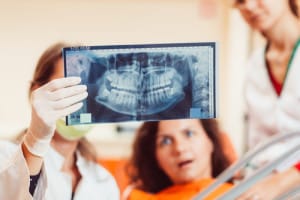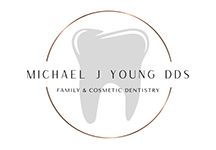 Whether your wisdom teeth are beginning to erupt or not – they may need to be extracted. Since this is such a common procedure nowadays, many patients don’t understand the purpose of having these third molars at all. While they can be a considerable asset to your mouth, they often pose more risks than benefits for us now. However, this isn’t always the case for everyone as some people don’t have any third molars at all! Unless your wisdom teeth aren’t endangering your oral health, (in other words, if they come in perfectly aligned) extraction may not be necessary.
Whether your wisdom teeth are beginning to erupt or not – they may need to be extracted. Since this is such a common procedure nowadays, many patients don’t understand the purpose of having these third molars at all. While they can be a considerable asset to your mouth, they often pose more risks than benefits for us now. However, this isn’t always the case for everyone as some people don’t have any third molars at all! Unless your wisdom teeth aren’t endangering your oral health, (in other words, if they come in perfectly aligned) extraction may not be necessary.
An Increased Risk For Infection
In some cases, your third molars can become impacted – or stuck – between your jawbone and gum line. Often, they’re unable to erupt through the gum tissue because they’ve come in too misaligned, creating an ideal environment for bacteria to grow. However, this isn’t the only way they may increase bacterial growth around your mouth. In fact, even if they’re able to erupt – crooked teeth are typically very difficult to clean thoroughly as they can create hard-to-reach places.
While our oral health is already at-risk for infection – especially if you’re not practicing excellent oral hygiene or regularly visiting your dentist – wisdom teeth often increase that risk.
Not Enough Space
Way back before we were around, our ancient ancestors relied on this final set of molars to help them chew extremely tough, but common, foods. However, their jaw structure was also much larger than ours is now – leaving additional space for these teeth to come in. Without enough space, when wisdom teeth are coming in, they can cause the rest of your teeth to shift in order to make more room.
When Is Extraction Recommended?
Your dentist monitors the growth and development of your teeth from childhood to adulthood through x-ray images. If they suspect your wisdom teeth are going to cause additional dental complications in the future, you can opt to have them extracted before any pain or damage occurs. Otherwise, they’ll typically recommend wisdom tooth removal in your late teens or early twenties.
